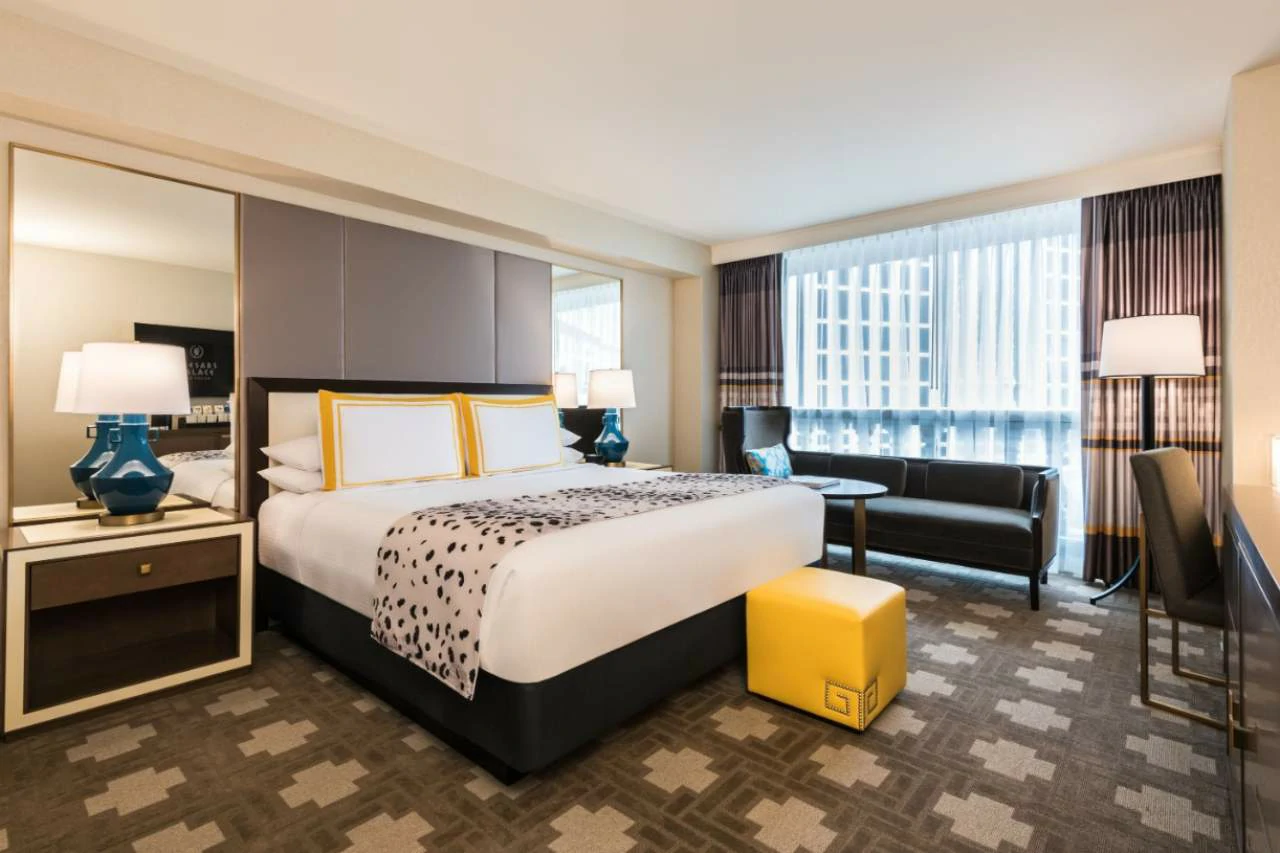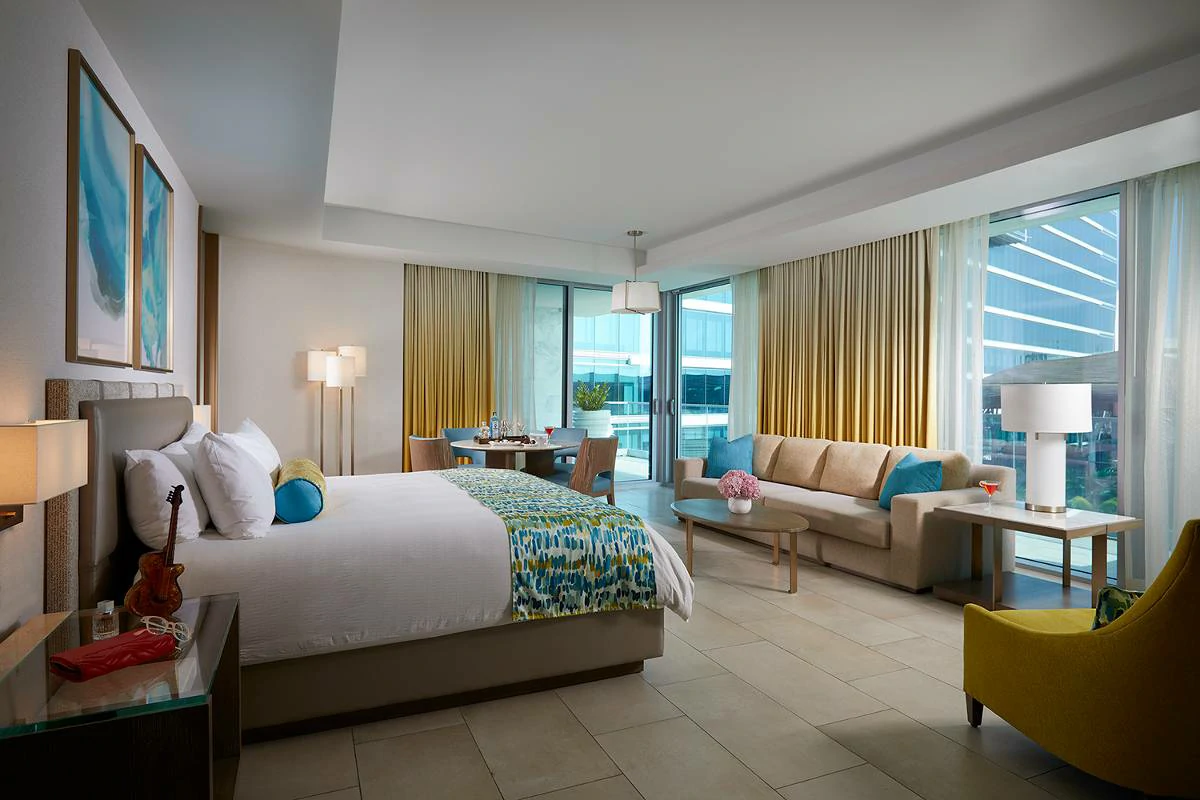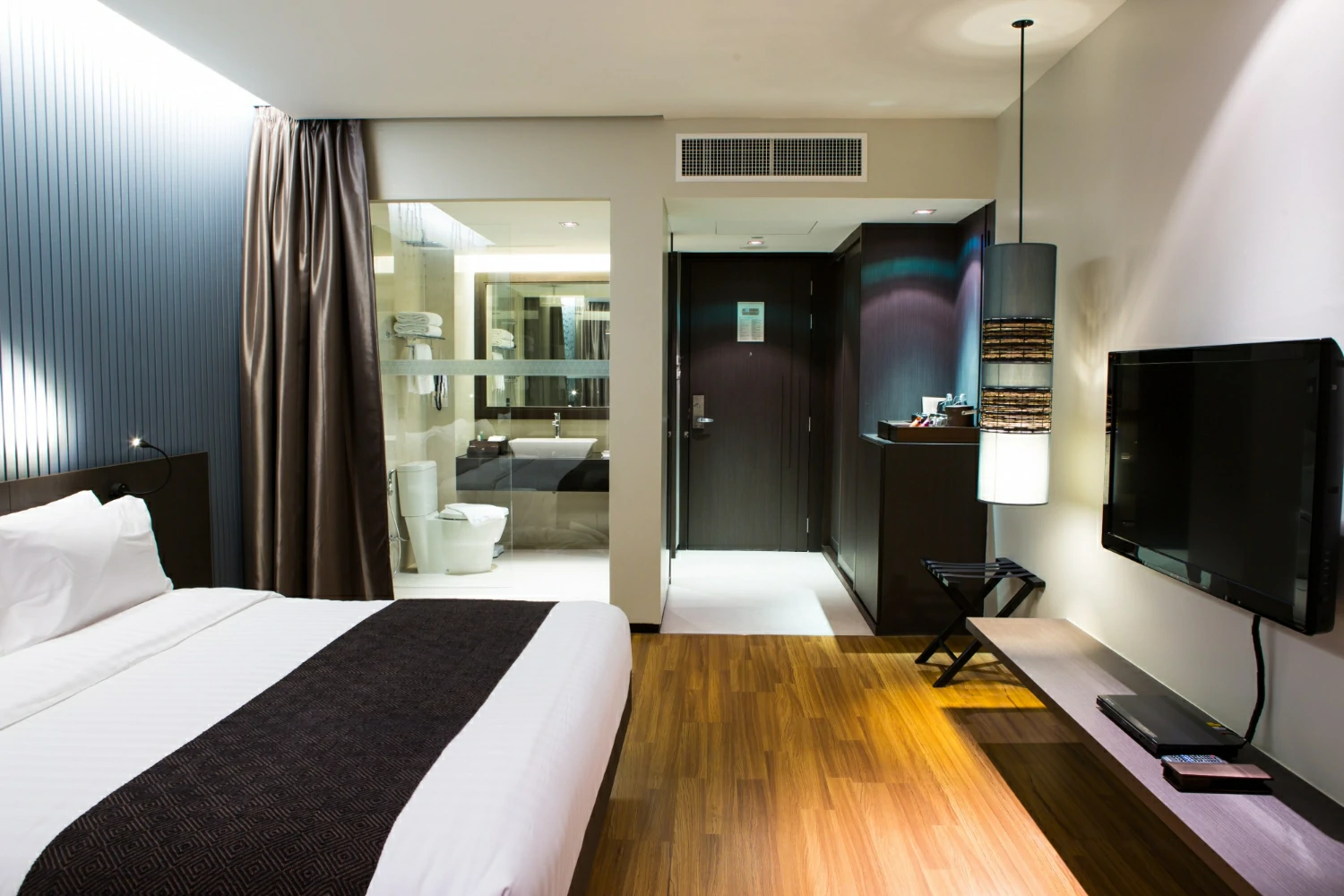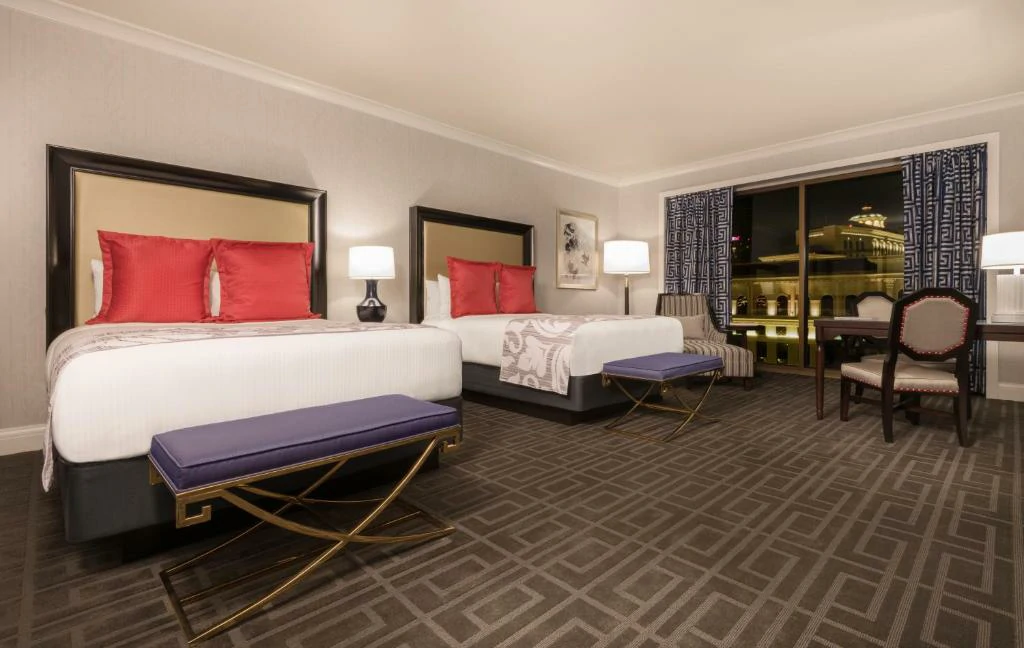Living in a hotel vs apartment? Which is a better choice for you? Answer is – Choosing between living in a hotel or an apartment depends entirely on your individual needs, budget, and lifestyle preferences. Hotels offer convenience, amenities, and short-term flexibility, but can be expensive. Apartments provide greater space, privacy, and a sense of home, but often require leases and furnishing. Consider your priorities regarding cost, amenities, location, and desired length of stay to make the best decision for yourself.
Summary
- Hotels offer convenience but can be costly.
- Apartments are more affordable long-term and offer more space.
- Consider budget, lifestyle, amenities, and length of stay when deciding.
Living in a hotel vs apartment

The decision between living in a hotel and renting an apartment presents a unique set of choices that reflect individual lifestyles and financial situations.
Let’s explore what makes each option desirable:
Hotel Living
The allure of hotel life lies in its promise of convenience and effortless luxury. Daily housekeeping, room service, and access to amenities like fitness centers and pools streamline daily routines.
Hotels often boast prime locations near city centers or attractions, adding to their appeal for those desiring a dynamic, on-the-go lifestyle.
Apartment Living
Apartments offer a different kind of charm. They generally provide more privacy and space than hotel rooms, allowing for personalization and a stronger sense of “home.”
The ability to cook in a full kitchen and the potential for cultivating a sense of community within the building or neighborhood resonate with those seeking a more settled living arrangement.
This article aims to provide a comprehensive guide for anyone weighing the pros and cons of hotel versus apartment living.
We’ll delve into the practical aspects like cost and amenities, as well as the less tangible factors like lifestyle preferences and the length of time you plan to stay in one place.
Whether you’re tempted by the ease of hotel life or drawn to the independence of an apartment, this article will equip you with the knowledge to make an informed decision that suits your needs.
Living in a Hotel
| Pros | Cons |
|---|---|
| Daily housekeeping and room service | High cost |
| On-site amenities (gym, pool, restaurant) | Limited space |
| Central/convenient locations | Lack of privacy |
| Flexibility with no lease commitments | Lack of a full kitchen |
1. Pros
Daily housekeeping and room service: One of the biggest draws of hotel living is the freedom from mundane chores. Fresh linens, clean towels, and a tidied-up space become the norm without any effort on your part. Room service adds an extra layer of luxury, allowing you to enjoy meals in the comfort of your room.
On-site amenities (gym, pool, restaurant): Many hotels offer amenities that enhance your quality of life. A fitness center eliminates the need for a separate gym membership, a pool provides a refreshing escape, and an on-site restaurant offers convenient dining options.
Central/convenient locations: Hotels are often strategically located in bustling city centers or near major attractions, putting you in the heart of the action. This can be particularly appealing for business travelers or those who enjoy a vibrant urban lifestyle.
Flexibility with no lease commitments: Unlike apartments, hotels don’t require long-term leases. This flexibility is ideal for individuals in transition, those on extended business trips, or anyone who values the ability to relocate without breaking a contract.
2. Cons
High cost: The convenience of hotel living comes at a premium. Nightly rates, especially in desirable locations, can add up quickly, making hotels a less sustainable option for long-term living from a financial standpoint.
Limited space: Hotel rooms, even suites, often offer less square footage than even a modest apartment. This can feel restrictive, especially if you’re accustomed to having dedicated living, dining, and sleeping areas.
Lack of privacy: With housekeeping entering your space daily and potentially thin walls between rooms, hotels may not provide the same level of privacy as a self-contained apartment.
Lack of a full kitchen: Most hotel rooms either lack a kitchen entirely or have only limited kitchenette setups. If you enjoy cooking or want the flexibility to prepare your own meals, this can be a significant drawback.
Living in an Apartment
| Pros | Cons |
|---|---|
| More affordable long-term | Leases and commitments |
| Greater space and personalization | Responsible for maintenance and upkeep |
| Sense of community | Furnishing costs |
| Full kitchen for cooking | May lack hotel-like amenities |
| More privacy |
1. Pros
More affordable long-term: While rent prices vary based on location and apartment size, apartments generally offer a more budget-friendly housing solution than hotels for extended stays. This is especially true when you factor in the potential cost savings of preparing meals at home.
Greater space and personalization: Apartments offer more room to spread out and the freedom to decorate according to your taste. This ability to create a living space that feels like your own can significantly enhance your sense of comfort and well-being.
Sense of community: Apartment buildings and complexes provide opportunities to connect with neighbors, fostering a sense of belonging. This social aspect can be a major draw for those relocating to a new area or seeking a more integrated living experience.
Full kitchen for cooking: Having a full kitchen at your disposal empowers you to prepare your own meals, offering greater control over your diet and potential cost savings compared to dining out or relying on room service.
More privacy: With no daily housekeeping and thicker walls, apartments generally afford a greater sense of privacy than hotel rooms. This can be particularly important for those who value their personal space and quiet time.
2. Cons
Leases and commitments: Most apartments require signing a lease, typically for a year-long term. This commitment can feel restrictive if your circumstances change or you prefer more flexibility in your living situation.
Responsible for maintenance and upkeep: As a renter, you’re usually responsible for reporting any maintenance issues but may have to wait for your landlord or management company to address repairs. In a hotel, maintenance requests are typically handled promptly by on-site staff.
Furnishing costs: Unless you’re renting a furnished apartment, the cost of furnishing your space can add up. Hotels eliminate this expense as rooms come fully equipped.
May lack hotel-like amenities: While some apartment complexes offer amenities like pools or gyms, they often don’t match the breadth of services found in hotels.
Living in a Hotel vs. Apartment
| Feature | Hotel | Apartment |
|---|---|---|
| Cost | Generally more expensive, especially long-term | More affordable for long-term stays |
| Space | Smaller rooms, often with limited storage | Larger living spaces, more storage options |
| Amenities | On-site gym, pool, restaurant, etc. | Varies by complex, may offer gym, pool, community spaces |
| Housekeeping | Daily cleaning and room service included | Responsible for your own cleaning and tidying |
| Kitchen | Limited or no kitchen facilities | Full kitchen for cooking |
| Privacy | Less privacy due to thin walls, housekeeping | More privacy |
| Lease/Commitment | No leases, flexible short or long-term stays | Leases required, usually 6-12 months or longer |
| Furnishing | Rooms come fully furnished | Typically unfurnished (some furnished options may exist) |
| Maintenance | On-site staff handles repairs promptly | Report issues to landlord, may experience delays |
| Community | Transient guests, less sense of community | Potential for stronger community ties with neighbors |

Factors to Consider
1. Budget
Being realistic about your budget is crucial. While the allure of hotel living is strong, the nightly rates add up quickly. Apartments generally offer a more financially sustainable solution for extended stays.
Hotels: Consider not only the nightly rate but potential hidden costs like parking fees, resort fees, and the added expense of dining out for most meals. Investigate whether hotels in your area offer discounted rates for long-term guests.
Apartments: Factor in the upfront costs associated with apartments, such as security deposits, application fees, and potentially the first and last month’s rent. Then calculate average monthly expenses like rent, utilities, and renter’s insurance. Don’t forget potential savings on groceries and dining with a full kitchen at your disposal.
Helpful Tools:
- Cost of Living Calculator: Websites like Numbeo allow you to compare the overall cost of living in different cities, which is helpful when weighing hotel vs. apartment prices.
- Budgeting Apps: Apps like Mint or You Need a Budget (YNAB) aid in tracking expenses and ensuring your chosen living arrangement aligns with your finances long-term.
2. Lifestyle
Your lifestyle preferences play a significant role in determining the best fit. Consider these questions:
Travel Frequency: Do you travel frequently for work or pleasure? If so, the lock-and-leave simplicity of a hotel might be appealing.
Minimalism: Are you a minimalist who values having fewer possessions? A hotel room’s limited space may naturally align with this mindset.
Sense of Home: Do you crave a space that feels uniquely yours, with the freedom to decorate and establish routines? An apartment better facilitates this sense of ownership.
Social Preferences: Do you enjoy the transient energy of a hotel lobby, or do you prefer the potential for building relationships with neighbors in an apartment setting?
3. Length of Stay
The intended duration of your stay is a significant factor:
Short-term (a few weeks to months): Hotels excel in providing comfortable accommodations for temporary situations. If you’re between houses, on an extended business trip, or relocating and need time to find a permanent residence, a hotel offers convenience.
Long-term (6 months or more): For extended stays, apartments generally become the more practical and financially sound option. The stability of knowing where you’ll be living for a set period can be important for both work and personal life.
4. Desired Amenities
Make a list of your non-negotiable amenities and see how hotels and apartments stack up:
Must-Haves: Do you require a fitness center on-site? Is a pool essential? Do you need reliable Wi-Fi for work? Does around-the-clock security offer peace of mind?
Apartment Complex Perks: Investigate the amenities offered by apartment complexes in your area. Some boast features like dog parks, community gardens, or business centers that enhance your living experience.
Hotel Luxury: If pampering is a priority, factor in the appeal of hotel spas, room service, and concierge services.
5. Location
Location is often a deciding factor, so consider your needs carefully:
Proximity to Work: If you have a long commute, a hotel closer to your workplace might save precious time and reduce potential transportation costs.
Urban Excitement: Hotels are often situated in bustling city centers, ideal if you enjoy walkability and a vibrant atmosphere.
Neighborhood Charm: Apartments offer the chance to settle into a specific neighborhood with its own unique character. Research the vibe of different areas to find one that resonates with you.
What Does It Mean to Live in a Hotel?

While hotels are traditionally associated with short-term stays for vacations or business trips, living in a hotel long-term is a growing trend.
Here’s what it typically entails:
Extended-Stay Hotels: These hotels cater specifically to guests needing accommodations for longer periods, often weeks or months at a time. They offer a hybrid experience that bridges the gap between a hotel and a traditional apartment.
Features: Extended-stay hotel rooms are generally larger than standard rooms and usually include kitchenettes or even full kitchens. On-site amenities such as laundry facilities, fitness centers, and sometimes complimentary breakfast enhance convenience.
Negotiated Rates: Since you’re committing to a longer stay, it’s usually possible to negotiate a discounted nightly rate with the hotel, making this option more financially feasible.
Potential Motivations for Choosing Long-Term Hotel Living
Several scenarios might lead someone to opt for a long-term hotel stay:
Relocation: If you’re moving to a new city, a hotel provides a comfortable base while you search for a permanent apartment or house. This eliminates the pressure of making a hasty housing decision.
Job Transitions: Extended business trips or temporary job assignments in another location often necessitate longer hotel stays.
Home Renovations: If your house is undergoing major renovations, a hotel allows you to escape the construction zone and maintain a sense of normalcy.
Minimalist Lifestyle: For those who embrace minimalism and prioritize experiences over possessions, hotel living eliminates the burdens of managing a traditional household.
Travel Enthusiasts: Frequent travelers might appreciate the simplicity of the lock-and-leave lifestyle hotels offer, allowing them to base themselves in one location while exploring freely.
FAQs
1. Is it cheaper to live in a hotel or apartment?
In most cases, apartments offer a more affordable long-term housing solution compared to hotels. While hotels might offer weekly or monthly discounts, the nightly rates still add up quickly. Apartments generally have lower monthly costs, and the ability to cook your meals instead of relying on dining out or room service leads to additional savings.
2. Can you negotiate hotel rates for long-term stays?
Yes, you can often negotiate lower rates for extended hotel stays. Contact the hotel directly and speak to the manager or sales department. Explain the length of your intended stay and inquire about any long-term discounts or packages they offer. Be prepared to be flexible on your room type if that helps reduce the rate.
3. Are there hotels that offer apartment-style living?
Yes! Extended-stay hotels are designed precisely for this purpose. These hotels typically feature suites with kitchenettes or full kitchens, more spacious living areas, and on-site amenities that cater to long-term guests. Popular brands include:
- Residence Inn by Marriott
- Homewood Suites by Hilton
- Staybridge Suites
- Hyatt House
4. How do you find long-term stay hotels?
Here are effective ways to find long-term stay hotels:
- Online Search: Use search engines with terms like “[Location] extended stay hotels” or “[Location] long-term hotel rates”.
- Hotel Websites: Visit the websites of major hotel brands and browse their extended-stay options.
- Aggregator Sites: Websites like Kayak or Booking.com often have filters for long-term stays.
- Travel Agent: A travel agent specializing in temporary housing solutions can be a valuable resource.
Conclusion
The decision between hotel and apartment living hinges on your budget, lifestyle preferences, and how long you plan to stay in one place.
Hotels offer convenience and flexibility, but apartments generally win out for affordability over longer periods.
By carefully considering the factors we’ve explored, you’ll be well-equipped to make the choice that best aligns with your needs.







